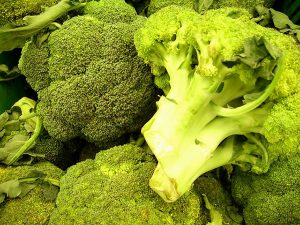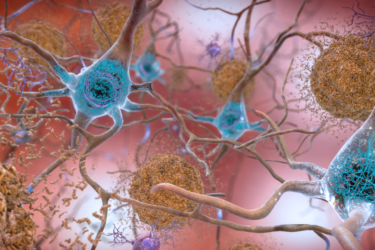
Here’s another reason to eat your broccoli: It’s a great source of Vitamin K that may help decrease the risk of mobility loss and independence.
A recent study from Tufts University found that low circulating levels of this vitamin are tied to an increased risk of mobility limitation and disability in older adults. Older adults with low circulating vitamin K levels were nearly 1.5 times more likely to develop mobility limitations and nearly twice as likely to develop mobility disability compared with those showing sufficient levels, regardless of gender.
Researchers said this is the first study of its kind to look at the association between biomarkers of vitamin K status and the onset of mobility limitation and disability in older adults. The work builds on previous studies indicating that low levels of circulating vitamin K are associated with slower gait speed and a higher risk of osteoarthritis.
“Because of our growing population of older people, it’s important for us to understand the variety of risk factors for mobility disability,” said Kyla Shea, lead author and a nutrition scientist in the Vitamin K Laboratory at the Jean Mayer USDA Human Nutrition Research Center on Aging (HNRCA) at Tufts. Low vitamin K status has been associated with the onset of chronic diseases that lead to disability, but the work to understand this connection is in its infancy, she said.
The new study examined two biomarkers: circulating levels of vitamin K (phylloquinone) and a functional measure of vitamin K (plasma ucMGP). Using data from the Health, Aging, and Body Composition Study (Health ABC), researchers found that older adults with low levels of circulating vitamin K were more likely to develop mobility limitation and disability. The other biomarker, plasma ucMGP, did not show clear associations with mobility limitation and disability.
Biomarker levels also can be affected by additional known or unknown factors, according to author Sarah Booth, HNRCA director and a vitamin K and nutrition researcher. Further experiments to understand the mechanisms of biomarkers and vitamin K and their role in mobility are needed, Booth said.
The study used data from 635 men and 688 women, 70-79 years old, who participated in Health ABC. Their mobility was assessed every six months for six to 10 years through annual clinic visits and phone interviews.
For the present analysis, the researchers defined mobility limitation as two consecutive semi-annual reports of having any amount of difficulty either with walking a quarter of a mile or climbing 10 steps without resting, and mobility disability as two consecutive semi-annual reports of having a lot of difficulty or inability to walk or climb the same amount.
Circulating vitamin K levels reflect the amount of vitamin K in the diet. The best food sources of vitamin K include leafy greens such as spinach, kale and broccoli and dairy products such as milk, yogurt and cheeses. For an average adult, one cup of raw spinach provides 145 micrograms (mcg) of vitamin K1, or 181 percent of the daily value. One cup of raw kale provides 113 mcg, or 141 percent. A half-cup of chopped boiled broccoli provides 110 mcg, or 138 percent.
Between 2008 and 2012, nearly 40 percent adults over 65, about 15.7 million people, reported at least one disability, according to the U.S. Census Bureau. Of those, two-thirds said they had difficulty in walking or climbing.
In addition to grants from the National Institutes of Health, the authors disclosed that their research was supported by the National Institute of Nursing Research, the Arthritis Foundation, and the U.S. Department of Agriculture’s Agricultural Research Service. Tufts University works with the USDA on dietary guidelines and dietary reference intakes, as well as other nutrition policies.
Journalists may want identify any educational or support programs in their communities that aim to ensure older adults get adequate nutrition. Also, look into what is being done to address the issues of food deserts and food insecurity among this population.
Resources
- American Community Survey Data on disability status by age, sex and selected socioeconomic characteristics, such as marital status, living arrangement, educational attainment and poverty status for 2017.
- This Census Bureau infographic breaks down disability among the 65 and older population by county for the 2008-12 period.
- This 2016 study looked at the effect of neighborhood on disability status among older people. We’ve previously reported about the effects of ZIP code on health.
- Tip sheet: What reporters should know about nutrition and aging






